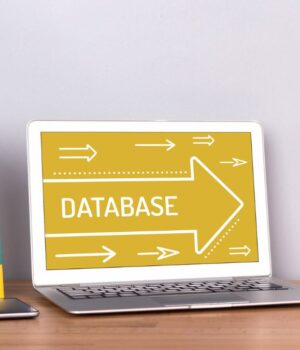If you have a home-based business, you may qualify for certain tax deductions. There are several expenses that the IRS recognizes as part of your home-based business expenses. Do some study if you’re not sure if you’re eligible for these discounts. Before submitting your tax return, there are a few things you should think about deducting.
- Indirect Expenses
- Unrelated Expenses
- Startup costs
- Operating Expenses
Indirect Expenses:
If you run a home-based business, you can claim several tax deductions. These include expenses incurred on advertising and promotional activities. It would help if you had a business purpose for the cost, though. For instance, if you are running a mail-order business, you may need to print ads in newspapers or magazines. Internet entrepreneurs must utilize search engines and online ads to advertise their products.
Another way to claim business expenses is by claiming ordinary costs. These expenses include raw materials, freight, shipping, storage, and direct labour. You may be able to deduct the cost of using software to manage your firm. It can also remove other miscellaneous expenses, such as telecommunications and website hosting.

A home office deduction is another ordinary deduction. Home mortgage interest can be deducted if you use part of the home for your business. You can also claim mortgage insurance for the area of the house you use for your home based business ideas. It’s crucial to remember that this deduction only applies to the portion of your home used for the company. This is often based on the square footage of the house and the business itself.
Office supplies can also be deducted. Office supplies can include staples, computer equipment, and printers. Of course, if they are purchased specifically for your home business, you’ll need to keep detailed records of the costs. You can also write off your utilities and mortgage interest if you have a home office.
You can take advantage of several different tax deductions for your home business. These expenses are classified as direct or indirect. The latter is preferable since you can use them more liberally than the former. These deductions are essential for your tax return and can help you earn more money.
While the IRS will not allow you to use your vehicle 100 per cent for your home business, you can deduct mileage and gas expenses for your business if you use it exclusively for your business purposes. However, it’s essential to keep accurate records of your business activities and keep receipts of any gasoline purchases over $25.
Unrelated Expenses:
If you operate a home-based business, you can deduct expenses related to that business. These expenses are categorized as direct or indirect. Direct payments are those incurred for using your home as a business, such as for long-distance or additional phone lines. Basic local phone service charges, however, are not deductible. Indirect expenses are those incurred for other reasons. On the other hand, unrelated costs are those that have no direct connection to your business.
You must maintain records to calculate your deductions when operating a home-based business. For example, if you make a home office upgrade, the cost could be deductible as a direct expense. If you use part of your home for other purposes, such as painting your home, this would be an indirect expense. However, the cost would be considered unrelated if you do not use the entire house for your business.

Another type of home-based business that can claim a home office deduction is an interior decorator. This professional usually meet with clients at their home. They have many pattern books and samples and often invite clients to visit and browse their materials. Even though they meet clients in their homes, they have a separate office for administrative purposes.
Startup costs:
Tax deductions for home-based business startup costs can be as high as $5,000, but the amount must be less than $50,000 to qualify. Startup costs that exceed that amount are not deductible but can be deducted over a 15-year period. If you have more than $55,000 in startup costs, you may be able to defer these costs until you start to generate revenue.
The most significant expense for home business owners is inventory, which is the goods and materials you buy to sell to customers. Even items purchased at flea markets can be considered inventory, and the cost of these items can be deducted from your income taxes once you start selling them. Before you write off beginning expenditures as a deduction, there are a few crucial facts you should be aware off.

Regarding startup expenses, you can deduct any costs related to marketing or advertising your business. If the prices are relevant to your home-based business, you can remove them in two ways: the first year or equal instalments over fifteen years.
Startup costs also include the cost of finding suppliers, training employees, and advertising. However, you cannot deduct any expenses related to equipment purchases. This is because the costs of equipment, such as computers, will be depreciated due to your business’s operating expenses.
Assuming your home-based business is a limited liability company (LLC), you can deduct organizational costs. For example, legal services and state fees are deductible. You can also remove the salary and meeting expenses of business principals. However, you must remember that the Internal Revenue Service limits the amount of startup organizational expenses you can deduct. You can only deduct up to $5,000 for these expenses.
Operating Expenses:
Home-based business owners are entitled to claim certain expenses as part of their operating expenses. These expenses include real estate taxes, homeowners insurance, utilities, and repairs. However, you must consult a financial professional or accountant to determine which deductions apply to you. Home-based business owners, for instance, are permitted to write off a specific portion of the area of their property devoted to their operations. They can also deduct the cost of equipment and office supplies such as printer cartridges and paper.
Another tax deduction for home-based businesses includes professional fees. You can deduct the cost of these fees if you can prove that the money was spent solely for business purposes. You should keep detailed records of your home-based business operating expenses to qualify for this deduction.

Other deductible expenses include office supplies, credit card processing, and tax preparation fees. Additionally, you may be able to amortize or deduct the cost of maintaining your commercial property.
Telephone and internet bills can also be deducted as part of business operations. However, telephone bills for personal purposes can only be removed if they are related to the business. Up to 50% of your total business expenses are phone and internet service costs.




















































